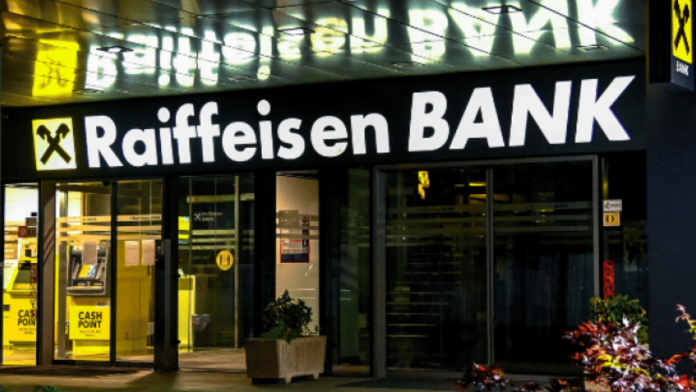Austria’s Raiffeisen Bank International (RBI) has hit another roadblock in trying to sell its stake in Russia. The bank’s repeated efforts to hand over part of its Russian operations to a local buyer have failed, sources familiar with the situation said.
RBI’s Russian operations are very important because it is the largest bank in Russia that is not under Western sanctions. This allows it to handle money transfers and trade payments between Russia and Europe. Gas exports from Russia, which still reach Europe, often rely on Raiffeisen’s services. The bank has also earned around 7 billion euros in profits in Russia, but these funds are currently stuck and cannot be sent back to Austria.
The bank has been trying for years to reduce its exposure to Russia, partly because the United States and the European Union have been pressuring European banks to scale back their activities in the country. Selling a stake in Russia could have allowed Raiffeisen to free up some of its trapped profits and reduce its risks. Chief Executive Johann Strobl has personally been involved in past attempts to negotiate a sale in Russia.
Juan Francisco Ramirez pleads guilty to scheme that siphoned $13.6 million and caused bank collapse
Russia Blocks Sale to Protect Financial Ties
Raiffeisen’s efforts to find a Russian buyer have repeatedly failed. Russian authorities reportedly blocked the sale because they worry that a local buyer could trigger Western sanctions on Raiffeisen. If that happened, it would cut off one of Russia’s main connections to the international banking system.
Russia still wants to maintain some economic links to Europe. European countries continue to buy oil and gas from Russia, although at much lower levels than before the war in Ukraine. Raiffeisen’s bank in Russia acts as an essential financial bridge, helping these payments flow despite the ongoing conflict.
The bank has reduced lending, deposits, and payments in Russia in compliance with international sanctions. However, it continues to allow some large Russian companies to make limited payments in euros overseas. These operations are heavily monitored to follow global regulations.
Former Russian President Dmitry Medvedev has publicly criticized Austria, warning of consequences if the country abandons neutrality, highlighting the sensitive nature of Raiffeisen’s operations. Meanwhile, former U.S. President Donald Trump has called for Europe to cut energy ties with Moscow, adding pressure to the bank’s activities.
Banking blackout bypassed — documents reveal Russia–Vietnam backdoor weapons payment system
Raiffeisen’s Role in Russian Energy Payments
Raiffeisen’s presence in Russia is particularly critical for energy trade. The bank processes payments for the TurkStream pipeline, which transports gas from Russia to Europe through Turkey. In the first eight months of the year, about 11.5 billion cubic meters of gas passed through TurkStream. This gas is worth roughly 3.8 billion dollars at average market prices, making the pipeline a vital part of Russia’s gas exports.
While Raiffeisen has been criticized by Ukraine for helping Russia financially, the bank continues to operate under heavy restrictions. Its special status and long history of connections between Austria and Russia allow it to handle payments that other European banks cannot. This includes managing some international transfers for major Russian companies, ensuring that trade and energy deals with Europe can still take place.
RBI has also faced legal and financial risks in Russia. Earlier this year, it was ordered to pay 2 billion euros in damages over a collapsed financial deal. The bank remains cautious and continues to negotiate with Russian authorities about potential sales of its operations, though there is no clear timeline for any deal.
Raiffeisen’s efforts to reduce its Russian exposure while still supporting limited international payments show how complex banking operations have become amid the ongoing war in Ukraine and escalating tensions between Russia and the West.


